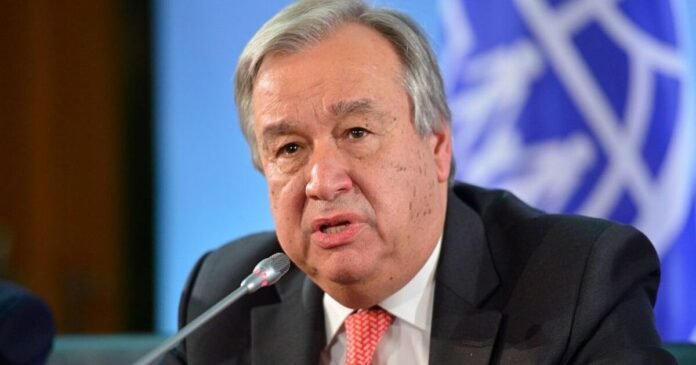UN Secretary-General Antonio Guterres has invoked Article 99 of the UN Charter, urging the UN Security Council to take action on the Gaza war. This unusual step comes as the Security Council has not yet adopted a resolution calling for a ceasefire between Israel, Hamas, and their allies.
What is Article 99 of the United Nations
Article 99 of the UN Charter grants the Secretary-General the power to bring to the attention of the Security Council any situation that could potentially endanger international peace and security. It serves as a mechanism for the Secretary-General to alert the Council about emerging crises or threats, prompting them to deliberate on the matter. By invoking Article 99 in the context of the Israel-Hamas conflict, Secretary-General Guterres is signaling that he deems the situation in Gaza to be of such significance and urgency that it necessitates the immediate attention and action of the Security Council to prevent further escalation and mitigate potential consequences.
UN Security Council Dynamics Amidst Calls for Humanitarian Ceasefire in Israel-Hamas Conflict
Considered the UN’s most powerful body, the 15-member Security Council is responsible for maintaining international peace and security. In his letter to the council’s president, Guterres invoked this duty, expressing his belief that the situation in Israel and the occupied Palestinian territories “may aggravate existing threats to the maintenance of international peace and security.” Guterres, advocating for an “immediate humanitarian ceasefire” since October 18, also highlighted the “appalling human suffering, physical destruction, and collective trauma across Israel and the occupied Palestinian territories.” In response to Guterres’s letter, Security Council member the United Arab Emirates announced on X that it had submitted a new draft resolution, calling urgently for the adoption of a humanitarian ceasefire resolution.
Should the council decide to follow Guterres’s advice and adopt a ceasefire resolution, it possesses additional powers to ensure implementation. These include the authority to impose sanctions or authorize the deployment of an international force. However, it’s important to note that the council’s five permanent members—China, Russia, the US, the UK, and France—have veto power, which can impact the decision-making process.
On October 18, the US exercised its veto against a resolution that aimed to condemn Hamas’s attack on Israel and called for a temporary halt in the fighting to facilitate humanitarian assistance into Gaza. Twelve other council members voted in favor, while Russia and the UK abstained.
A looming catastrophe
Guterres expressed concern over the Security Council’s ongoing inaction and the severe deterioration of the situation in Gaza. This led him to invoke Article 99, a move he has not made since assuming the top role at the UN in 2017. He cautioned that public order in Gaza might soon disintegrate with the complete collapse of the humanitarian system. Guterres emphasized the rapid descent into a potential catastrophe with irreversible consequences for Palestinians and the overall peace and security in the region, stressing the necessity to prevent such an outcome at all costs.
